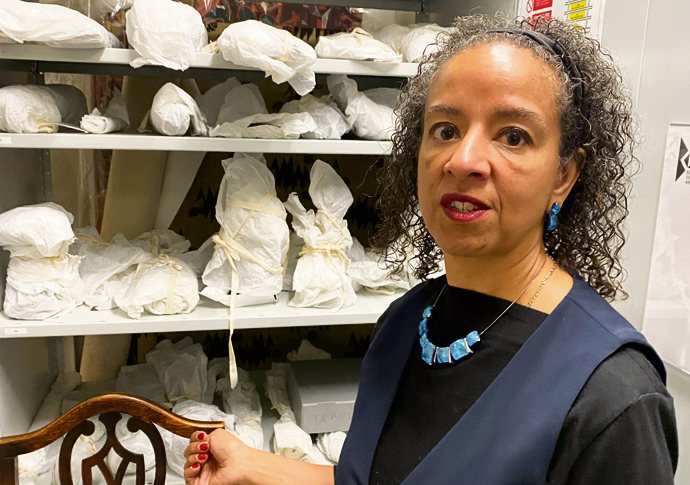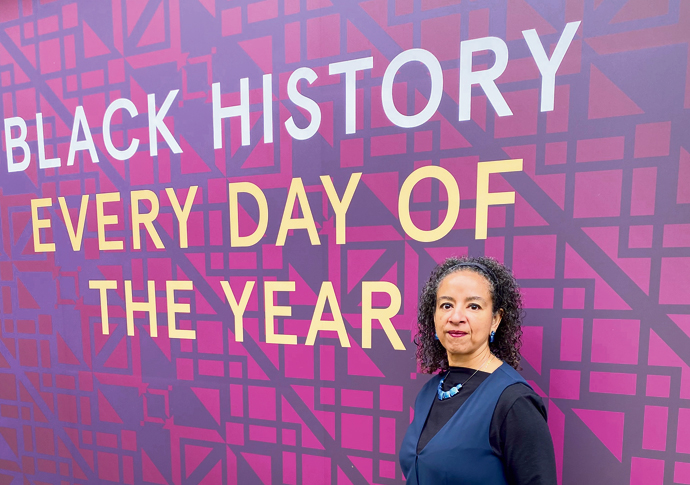How visionary idea for cultural archives came in the wake of blaze ‘massacre’
Archive chronicles, collects and records black history across the UK
Friday, 3rd October 2025 — By Dan Carrier

Historian Wanda Wyporska, from Tufnell Park, is taking on the role of chief executive of the Black Cultural Archives, which chronicles, collects and records black history across the UK
WITH items that date from the second century to the present day, the Black Cultural Archives have a myriad of stories to tell.
This week it was announced historian Wanda Wyporska, from Tufnell Park, was taking on the role of chief executive of the archive that chronicles, collects and records black history across the UK.
She told the New Journal how the archive was a response to issues black British communities faced – and has a vital role.
She said: “The archives grew out of a growing need. Established in 1981, it was seen as a way of responding to the New Cross massacre of that year.”
By the early 1980s there was a growing sense that the 1976 Race Relations Act was not fit for purpose, evidence that the education system was failing black children, and daily racism.
The New Cross fire, a tragedy at a house party in 1981 that saw 13 young black people killed, would highlight systematic racism in public authorities and the media – and prompt a mass movement to fight ingrained bigotry.
There was also an understanding of a need to create positive role models and counter a lack of representation in public spheres of people of African and Caribbean descent. Founding member Len Garrison had a vision – and it’s one that Dr Wyporska says holds true today.
She said: “Len was a community leader who saw the need to create a safe space, a place where black children particularly could see themselves represented in a positive way, see themselves represented in history and in culture.”
This led to the archive, a place that could become the home for black British history. It is now based in Brixton, south London.

Dr Wyporska said: “This was a visionary idea at the time, and very much needed, and we are still having these conversations today. They started collecting archives, records from activists, records from dance companies.
“Len became known as someone collecting items of black history, so people came to him with pieces they thought would be of interest.”
Pieces came from across the UK – “we are a national archive”, adds Dr Wyporska – and the collection runs exhibitions and classes for pupils and students. The archive works as a voice for the Windrush Generation, working as part of the Windrush Action Group and the Windrush National Organising Committee. And the archive has strong links with London universities – collaborating with Roehampton, Royal Holloway, University of London, and King’s College.
Dr Wyporska said: “What we try to do is not just be a depository, a place to preserve memories – though that is a political act in itself – but also bring black history and black culture to the next generation. We run a series of gallery exhibitions, educational programmes and public engagement events and provide free access to our unique set of archives, museum objects and reference library.”
The archive is used by a range of academics and researchers, through to people in film and TV. It is wide ranging, with everything from the records of early 20th-century dance troupes to the papers of writer Stella Dadzie, who founded the Organisation of Women of African and Asian Descent.
Records from the African Reparations Movement, photographs from the 1930s onwards, art by the Grenadian born Gordon de la Mothe and documents handed over by the British MC and rapper Derek B, as well as records from political movements from the 1970s onwards are included.
Dr Wyporska added: “One area I am really looking forward to delving into are the archives of the Unite Against Fascism movement in the 1970s. It is so important we look back at those times – as we are in similar times and facing similar issues today.”
Dr Wyporska has previously been the chief executive of the Society of Genealogists and will be bringing her experience to help studies on black family histories.
She added: “I have been around for some time and I remember the New Cross massacre, I remember the Brixton uprising. Moments in our lives have now become historical subjects and have to be taught to the next generation. We are living today in dark times, so remembering how our elders and communities deal with these issues is vital. Their struggles need to be remembered.”
• The Black Cultural Archive is at 1 Windrush Square in Brixton.